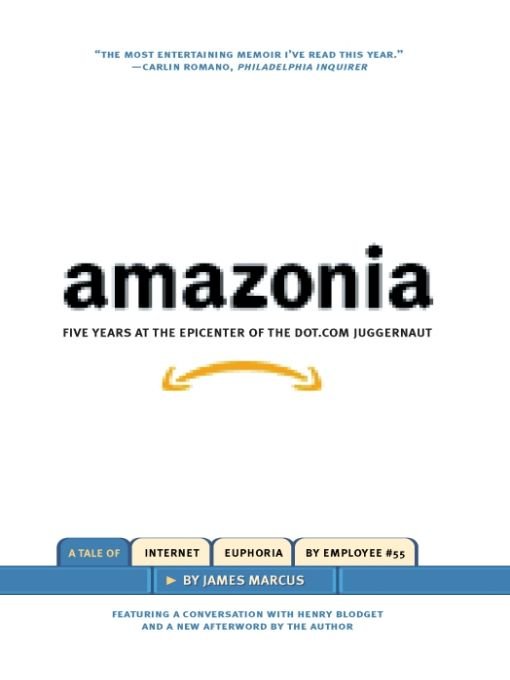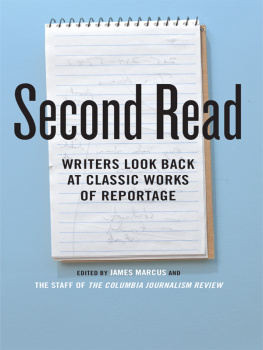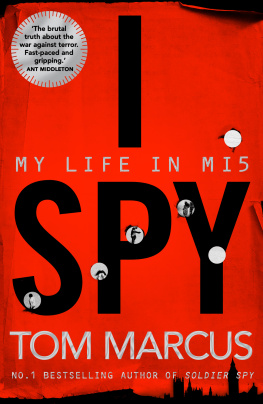Table of Contents
For Nina
The history of the Victorian Age will never be written: we know too much about it.
Lytton Strachey, Eminent Victorians
ONE FINE SPRING DAY IN 1996, I took off from Portland, Oregon, in a prop plane the size of a toy, which seemed to touch down in Seattle only minutes later. At the airport I rented a car. Then I drove to a low, inauspicious building south of the downtown, next to a barbecue joint whose vinegar-scented fumes I could smell the moment I hit the sidewalk, and made my way inside.
Since I was there for a job interview, I had donned a jacket and tie before entering. At once I had the sensation of being the most formally dressed guy in the building, not to mention the oldest, and lets recall that I was only 37sufficiently elderly, that is, to play Father Time in Amazon.coms winter pageant. To my right sat a half-dozen employees, answering phones and papering their computers and crude wooden desks with yellow Post-it notes. Directly in front of me was a receptionist seated at another crude wooden desk. Yet the atmosphere of the place was so anticorporate that she seemed merely decorative, and it struck me that a toddler could have breached the security cordon.
Are you James? a woman said, approaching me. I recognized Susan Bensons voice from our telephone conversation: an East Coast accent with a slight Californian deceleration at the end of her sentences. She shook my hand warmly and ushered me into what looked like the only bonafide office in the place. Jeff, she explained, would be interviewing me first.
And here he was. At this point Jeff Bezos hadnt yet become a figure out of American folklore, hadnt yet been celebrated as the only begetter of e-commerce or vilified as a purveyor of virtual snake oil. His explosive laugh, which first erupted about sixty seconds into our conversation, was still an unknown quantity. He was a small, sandy-haired man seated at a messy desk, reading my clips.
I like these, he said, brandishing the manila folder. I like your first sentences.
I thanked him. Although I had flown, we spoke for a moment about the surprising dullness of the drive between Portland and Seattle, which tended to peak around the time you crossed the Nisqually mud flats. I was in the rare and enviable position of not caring if I got the job, which made me relaxed, tie or no tie. Jeff was wearing baggy khakis and a blue Oxford shirt, and his demeanor was so low-key that he seemed at some moments to be moving in a kind of affable slow motion. He asked me how I would feel about working sixty hours a week.
Im not wild about the idea, I said, wondering if this was the good or bad kind of honesty. But if I love the work Im doing, I dont think Id mind as much.
What Id like you to do, he said, putting these nuts-and-bolts matters firmly behind us, is explain a complicated process in as simple a manner as possible.
Later I discovered this was the Bezonian curveball, which in some shape or form was lobbed at every job candidate. In many cases the trembling applicant was asked how many gas stations were in the state of Texas, or how many windows there were in New York City. Nobody was expected to cough up the right answer. You were expected to demonstrate some conceptual shrewdness in how you arrived at the number, though, and I suppose my own answer supplied a similar window into my mental processes.
It was easier, of course, since Jeff had let me select my own brainteaser. I chose to explain how I had translated the florid Italian cursing in Oriana Fallacis novel Inshallah into florid American cursing.
How was that complicated? he asked.
Usually a word-for-word translation of an idiomatic expression doesnt work. What sounds blasphemous in one language sounds dopey in another. But its simple, too, in the sense that you just sit down with a dictionary and a pad and some sharpened pencils and get it done. One sentence after another.
I gave Jeff some examples, and he seemed satisfied with the way I juggled simplicity and complication, laughing at my potty-mouthed equivalents for cazzo dun cazzo stracazzato. Then, looking embarrassed, he asked me what my SAT scores had been. I know its been a while since you took them, he said, but if you could remember at least your approximate scores...
I took a guess, and here too he seemed satisfied, noting the numbers on a piece of paper. In retrospect this would be my first taste of the companys mania for quantification, for its immersion in what was grandly called the Culture of Metrics. It was obvious that my performance on those tests, which had taken place a generation ago, had little bearing on my current abilities. Still, Jeff jotted down my scores with evident relish.
Would it bother you to be working for a store rather than a newspaper or magazine? he said.
That depends, I replied. I understand that youre not running a philanthropic service here: youre selling stuff. But is the idea that I pretend to like everything?
Not at all. Wed be hiring you for your abilities as a book critic. The idea is to seem smart and authoritativeto become not just a store but a destination. He gave this last word an almost theological stress.
We batted around favorite books for a moment. It turned out that we both had a weak spot for Frank Herberts Dune trilogy, and we spent a minute or so dissecting the desert ecology of Arakis and the sublimely evil Baron Harkonnenthe sort of villain who chuckles a lot. Then Jeff turned the tables.
What about you? he said. Is there something youd like to know? He leaned back in his chair and seemed to be girding himself for an assault. He neednt have bothered. I had already succumbed to his brand of anticharismatic charisma, which would have mortified a Great Man of a century ago but seemed just right for our nerd-driven meritocracy. Jeff, it should be stressed, was a likeable and normal person. He had none of Bill Gatess pasty paranoia, nor would he be likely to build a floating Xanadu in the manner of Larry Ellison. No doubt he was, and is, as ambitious as either of these empire builders. Yet the habit of humorous self-effacement kept his Napoleonic side under wraps.
Yes, there is. Whats a hedge fund? According to a Wall Street Journal article I had read, this had been Jeffs bread and butter at D.E. Shaw, and the term meant nothing to me.
Good question, he said. Sketching a graph on a piece of scrap paper, he explained that it was possible to track the diverging and converging fortunes of certain industriesairlines and oil, for exampleand, once you understood their peculiar rules of attraction, to make scads of money. Here he hit the Bezonian curveball out of the park. He made the mind-bending complexity of running a hedge fund seem so simple that I thought I could run out and start my own. But now Jeff escorted me back downstairs to Susan. We had a great conversation! he told her, and then asked her to show me the warehouse.
Although Amazon had been selling books for less than a year, it had long since outgrown its original quarters in Jeffs Bellevue garage, and the current location was basically a warehouse with (very) ad-hoc offices. Susan led me down a short corridor and into a large room with row upon row of metal shelves. On each shelf was a pile of books. The place might have resembled a library, except that each pile represented an individual order. And if the high chilly room with its Home Depot hardware was an impersonal space, the books themselves were all too personal. Indeed, the more you trawled up and down the aisles and examined the rubber-banded merchandise, the more you felt yourself surrounded by Rorschach blots. In one pile Stendhal cohabited with











